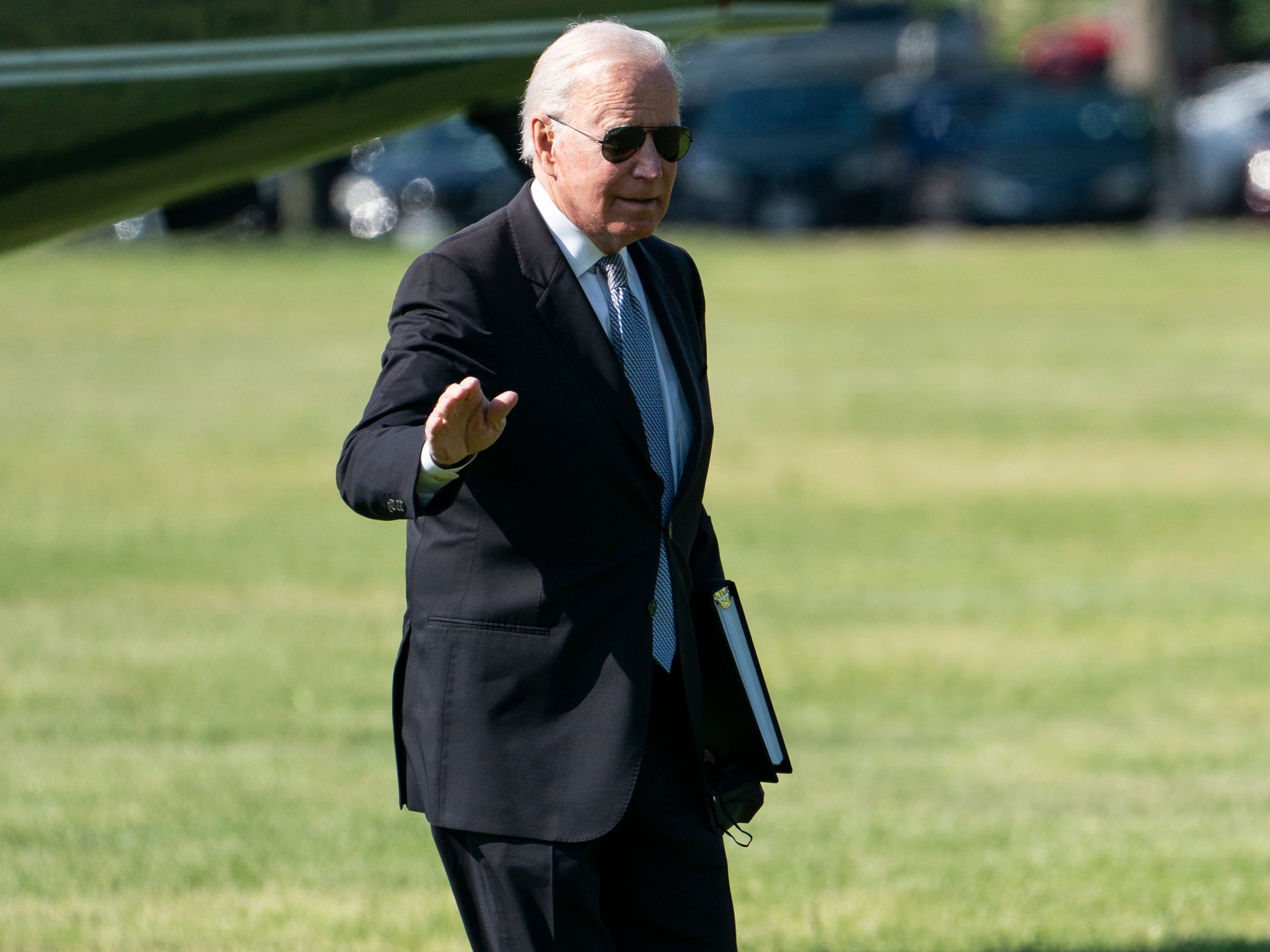As the Israeli-Palestinian conflict continues, where exactly is Joe Biden?
Editorial: America needs to exert far more of its diplomatic power to stop the fighting, as it has done in the past, even if it refuses to engage directly with Hamas

The Israeli-Palestinian conflict continues to have desperate consequences, with Hamas missiles penetrating Israel’s defences and Benjamin Netanyahu using his “iron fist” on the people of Gaza. But the Israeli government has, so far, resisted the temptation to order a physical, troops-on-the-ground invasion, of the kind that has been launched before.
It did not work then, in terms of long-term success, and it may well be that the Israeli military has advised the cabinet accordingly. As an act of vengefulness, it has its political attractions. Mr Netanyahu is a prime example, indeed a pioneering one, of the kind of authoritarian, aggressive nationalist leader who thrives on the visible use of force, part of a group that includes the likes of Recep Tayyip Erdogan, Narendra Modi, Vladimir Putin and, until recently, Donald Trump.
Hamas, too, is guilty of its own war crimes, its pleas that it seeks to minimise collateral damage sounding hypocritical. But in terms of anything like a decisive “victory” over Hamas, an invasion of Gaza is doomed to failure, and the Israelis know it. By the same token, Hamas is not going to speed the establishment of a properly functioning Palestinian state by murdering Israeli citizens. Indeed, the more brutal the actions of the Israeli Defence Forces and the Hamas rocket commanders, the more remote anything like peace becomes.
There is little hope of a rapid de-escalation. It will take time for the gentle diplomatic proddings from the United Nations, Egypt, Qatar and the United States to be taken seriously. At the moment, both sides are intent on “protecting” their own people, though that process seems to be having the opposite effect.
The Israelis, in particular, will respond to political pressure if it is exerted with sufficient skill and firmness. Whether President Biden’s envoy Hady Amr is able to do that is in some doubt, though. As the deputy assistant secretary for Israeli and Palestinian affairs at the US State Department, he no doubt knows his stuff but, reaching for a historical parallel, he is no Henry Kissinger. Even backed up by phone calls from Mr Biden and behind-the-scenes mediation, America needs to exert far more of its diplomatic power to stop the fighting, as it has done in the past, even if it refuses to engage directly with Hamas.
Unlike so many of his predecessors, including Mr Trump, Mr Biden shows little inclination to get involved in the Middle East and the wider region, as his eagerness to get out of Afghanistan and Iraq illustrates. It is understandable. Most peace initiatives run into the sand, and even the ones whose participants are recognised with the Nobel Peace Prize tend not to endure.
In Yemen, a forgotten war, as in Iraq, Syria and elsewhere, America, with Iran, Saudi Arabia and Russia, seems cynically content to allow proxies to fight its wars for it. Mr Biden doesn’t want to be another president who loses thousands of American lives and spends billions of dollars for nothing.
The lesson of history, though, is that neglect of these long-running disputes and wars not only costs lives but makes America and the west more vulnerable to attack. Stability in the Middle East might be a pipe dream, but the White House could easily do far more to intervene to stop the slaughter. Mr Biden could send the secretary of state, or the vice-president or someone of equivalent political weight to the region, for a start, and make sure Israel understands it does not have the unconditional backing of the US. Unless, that is, Mr Biden is happy to pass the role of mediator passively to China, which seems keen to assert its power in the interests of peace (and, no doubt, of China).
Surely America is moved by what is happening to Israeli and Palestinian children and civilians? Mr Biden is a man who prides himself on his compassionate nature, but we have seen precious little of it lately.



Join our commenting forum
Join thought-provoking conversations, follow other Independent readers and see their replies
Comments